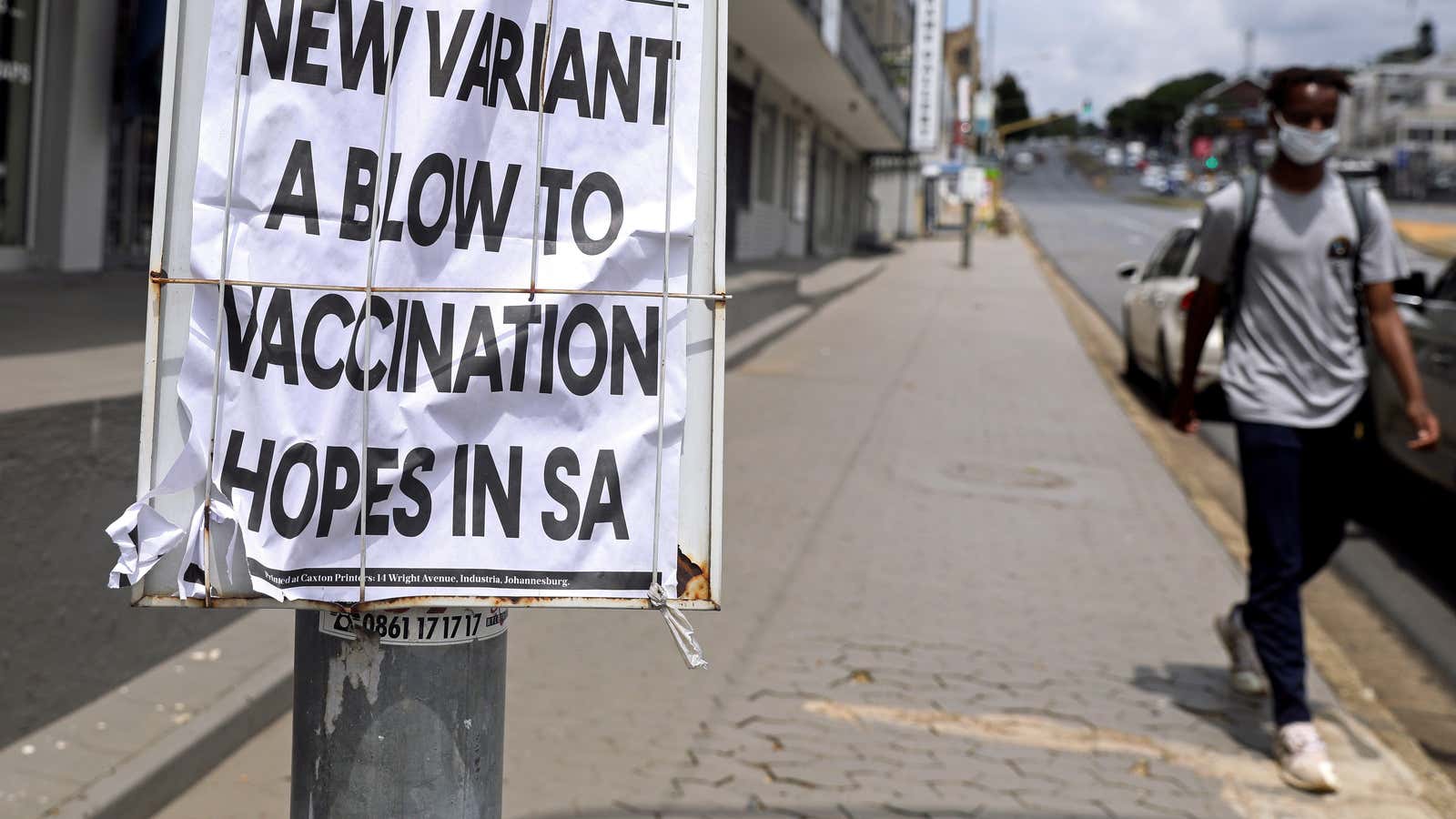South Africa is poised to achieve a milestone in the worldwide response to the coronavirus pandemic when it becomes the first country to administer a Covid-19 vaccine created by the pharma giant Johnson & Johnson (J&J) this week.
Developed by Janssen, J&J’s vaccine-making subsidiary, the vaccine has shown in human trials to be highly effective at preventing severe illness from a variant of the virus that emerged in South Africa in December, and has since appeared in at least 32 countries. The country hit hardest by the coronavirus on the continent, South Africa has experienced 1.5 million cases of Covid-19 and at least 48,000 deaths since last March.
J&J is awaiting approval of its vaccine in several countries, including the US, which is expected to rule on the company’s request later this month.
The rollout of the J&J vaccine in South Africa marks a pivot by public-health officials, who had planned this week to begin vaccinating the country’s estimated 1.5 million frontline health-care workers with a jab developed by Oxford University and AstraZeneca. Officials paused the rollout of the AstraZeneca vaccine and recalibrated their plans based on preliminary, limited evidence that raised questions about the ability of the AstraZeneca vaccine to protect against severe illness from the 501Y.V2 variant, as the local strain is known.
To get the J&J jab into arms, South Africa will redeploy up to 500,000 doses that the company had set aside for global clinical trials, which showed the vaccine to be nearly 90% effective in preventing severe illness from Covid-19 caused by the 501Y.V2 variant. Health officials plan to administer the shots to health-care workers at 16 hospitals that J&J had used to test its vaccine in South Africa. Regulators approved the so-called “early-access” program on Friday.
“It’s incredible that we can switch so quickly,” Glenda Gray, president of the South African Medical Research council and a co-principal investigator of the J&J vaccine trial, said on Tuesday. “We were going to start the AstraZeneca program on Monday, and we are announcing the initiation of an alternative program to start the same week, which I think is phenomenal. The shift to the J&J was an important decision, because it’s the only vaccine that we knew would help against hospitalization and death.”
Officials say they expect J&J to deliver the vaccine, which will ship in vials that hold two doses apiece, to South Africa at a rate of 80,000 doses every two weeks. Besides sourcing doses of the J&J vaccine from early-access supply, South Africa also has agreed to purchase 9 million doses. The J&J vaccine requires just one jab and can be stored in standard refrigerators, avoiding the need for workers to return for a second shot and making the vaccines the easiest the Covid-19 vaccines developed so far to distribute
Health-care workers who want to receive the jab are required to register via a national health department website that will establish their eligibility and send them a text message with details of when and where to get vaccinated. At least 28% of eligible workers, or roughly 351,000 people, had registered for a shot as of Monday afternoon. Gray says that officials hope to vaccinate workers 10 hours a day, seven days a week.
The deputy director general of South Africa’s national health department said on Tuesday that South Africa planned to try to recoup its investment in 1.5 million doses of the AstraZeneca vaccine that the government purchased from the Serum Institute of India. That may include sharing at least 1 million doses with other countries in the African Union. The shot remains a viable vaccine for countries that are not contending with the 501Y.V2 variant, according to the World Health Organization.
In addition to the J&J vaccine, South Africa also plans to rely for its first phase of vaccinations on a Covid-19 jab jointly developed by Pfizer and BioNTech. That vaccine has shown in laboratory studies to also offer a high degree of protection against the 501Y.V2 variant. Cyril Ramaphosa, South Africa’s president, said last week that the country anticipates delivery of 20 million doses of the double-dose Pfizer shot, enough to cover 10 million people, or roughly 25% of the nearly 40 million people the country plans to vaccinate, by April.
Ramaphosa added that the country expects to receive an allotment of vaccines through both the global Covax initiative and the African Union, and is continuing discussions with vaccine makers with the aim of purchasing additional doses.
The government has said it plans to acquire enough vaccines to immunize two-thirds of South Africa’s population of 58 million by the end of this year with the goal of achieving herd immunity.
